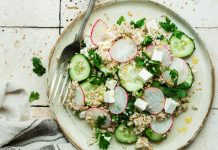
New research led by the University of Florida suggests that orange peels could be key to improving heart health.
The study, published in the Journal of Agricultural and Food Chemistry, shows that extracts from orange peels may help reduce the risk of cardiovascular disease.
Heart Disease: A Leading Cause of Death
Heart disease is the number one cause of death for men, women, and people of most racial and ethnic groups, according to the Centers for Disease Control and Prevention (CDC).
Recent studies have found that certain gut bacteria can contribute to the development of heart disease.
When these bacteria digest certain nutrients, they produce a chemical called trimethylamine N-oxide (TMAO). High levels of TMAO are linked to an increased risk of heart disease.
Yu Wang and her research team explored whether orange peel extracts, which are rich in health-boosting chemicals called phytochemicals, could lower TMAO levels. They tested two types of orange peel extracts: a polar fraction and a non-polar fraction.
To create these fractions, scientists used different solvents. Polar solvents mix well with water, while non-polar solvents do not.
Yu Wang explained it by comparing it to salad dressing: the water or vinegar part represents the polar fraction, and the oil part represents the non-polar fraction.
The study found that the non-polar fraction from orange peels effectively reduced the production of harmful chemicals. Additionally, the polar fraction contained a compound called feruloylputrescine, which significantly inhibits the enzyme responsible for producing TMA.
“This is a novel finding that highlights the previously unrecognized health potential of feruloylputrescine in reducing the risk of cardiovascular disease,” said Yu Wang, a professor of food science and human nutrition at UF/IFAS.
In the United States, 5 million tons of orange peels are produced each year during orange juice production. About half of these peels are used to feed cattle, and the rest are discarded.
However, the Food and Drug Administration (FDA) considers natural orange peel extracts safe for human consumption. Wang hopes to use these peels more effectively.
“These findings suggest that orange peels, often discarded as waste, can be repurposed into valuable health-promoting ingredients, such as diet supplements or food ingredients,” said Wang, who is also a member of the UF/IFAS Citrus Research and Education Center.
“Our research paves the way for developing functional foods enriched with these bioactive compounds, providing new strategies for heart health,” Wang added.
This study opens new possibilities for using orange peels, turning what was once waste into a potential life-saving resource for heart health.
If you care about heart health, please read studies about the best time to take vitamins to prevent heart disease, and calcium supplements could harm your heart health.
For more information about health, please see recent studies that blackcurrants can reduce blood sugar after meal and results showing how drinking milk affects risks of heart disease and cancer.



